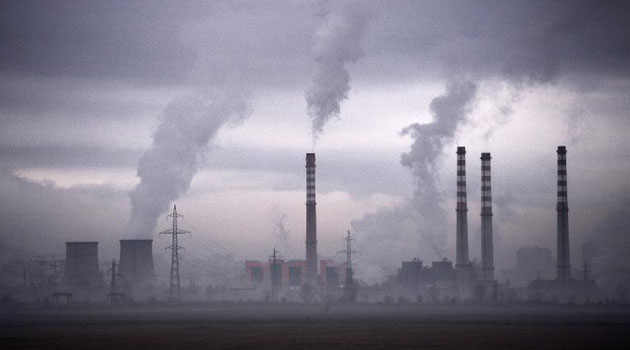
Other leading causes of air pollution are open burning of municipal waste and agricultural residues, industrial emissions, coal-fired power plants and indoor pollution brought about by cooking and heating with solid fuels such as coal, wood and crop waste/FILE
NAIROBI, Kenya, May 24 – United Nations Environment Programme Executive Director Achim Steiner has compared failure to address the causes of air pollution and environmental degradation in general, to the premeditated killing of one by another.
While he admits that the comparison may not be technically accurate, he says it is criminal to sit passively by and do nothing with the information that seven million people die annually as a result of air pollution in a worsening situation given a World Health Organisation report that global air pollution levels increased by eight percent between 2008 and 2013.
Water pollution on the other hand leads to 842,000 deaths a year, chemical exposure to lead and asbestos lead to 761,000 deaths in 2010 with the WHO cautioning that 250,000 additional deaths “could potentially occur” each year between 2030 and 2050 as a result of climate change.
“Our economies in the 21st Century in the name of development have actually begun to kill an extraordinary number of people. If we go by the available statistics that the WHO releases then almost one in four or one in five premature deaths that occur every day, every month, every year, on our planet are actually caused by ourselves.”
“That is in judicial terms sometimes called manslaughter or murder… I don’t want to go into the legal end of it but if you know that something is killing somebody else and you continue doing it, then this is an act that is deliberate.”
Exhaust fumes, for example, are responsible for 30 percent of particulate emissions in European cities and up to 50 percent in other countries.
Other leading causes of air pollution are open burning of municipal waste and agricultural residues, industrial emissions, coal-fired power plants and indoor pollution brought about by cooking and heating with solid fuels such as coal, wood and crop waste.
And of the seven million deaths linked to air pollution annually, 4.3 of them are attributable to indoor air pollution. “Particularly among women and children in developing countries. More than 50 percent of premature deaths due to pneumonia among children under the age of five are caused by the particulate matter inhaled from household air pollution,” a UNEP fact sheet reads.
Despite the bleak figures, Steiner is optimistic that given the right action, the tide can change.
Following interventions on depletion of the ozone layer, for example, positive health projections have been made. “The successful phase-out of nearly 100 ozone-depleting substances means that up to two million cases of skin cancer and many millions of eye cataracts may be prevented each year by 2030 thanks to the healing ozone layer,” UNEP and WHO jointly report.
Some progress has also been witnessed in the area of air pollution with Kenya, Uganda, Tanzania, Burundi and Rwanda for instance taking steps to ensure only low sulphur fuels are allowed within their borders but more, UN agencies are insistent, needs to be done.
“As global air quality declines, threatening to add to the seven million people air pollution kills each year, action in some air quality areas points to political will to tackle this ‘global public health emergency’ although current efforts still fall short,” UNEP adjudges in its report for the second United Nations Environment Assembly.










































